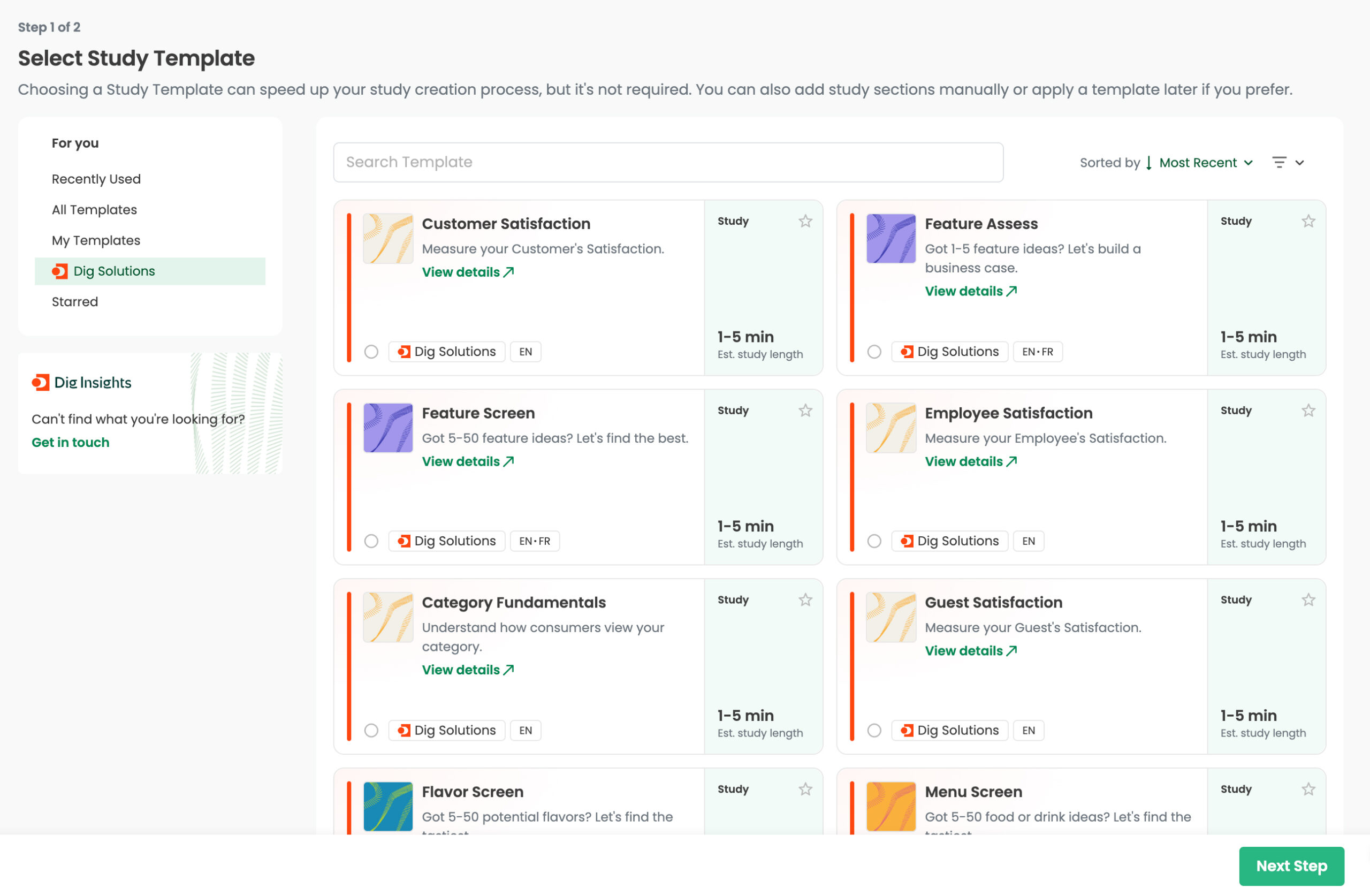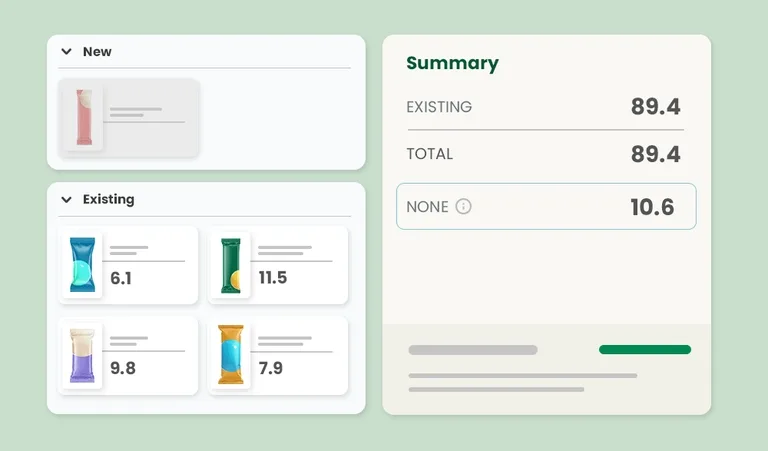Traditional market research tools struggle with poor data quality, cost-effectiveness, and quickly performing tests.
Luckily, modern technology is transforming the way market researchers gain insights and make business decisions.
Now, there’s a variety of online platforms to help market researchers improve their studies, and these are the top 6 benefits:
1. Build custom studies quickly
The least exciting part of running a study is setting it up. That’s the beauty of survey guides, or as we so fondly call them, Templates. With our Templates, you can speed up study and audience creation.
And if you’re looking for a better way of tackling an age-old type of tactical research (think: concept testing), you can use our Dig Solutions Templates. Pros at our parent company, Dig Insights, have modernized the approach to this kind of tactical research, and they’re baked right into the platform.

2. Test up to 50 ideas at once
Modern market research tools significantly reduce the amount of time it takes to generate study results and provide valuable insights back to the business. But, depending on the way a platform is priced or functions, it’s still challenging to test lots of ideas at an affordable rate.
On Upsiide, we don’t price based on ideas tested, meaning you don’t need to limit yourself. You can bulk upload ideas in whatever format makes the most sense (think: copy, copy and imagery, or a fully-fledged concept) and test them against each other in an afternoon. You’re welcome.
3. Turn insights into actions
In this day and age, it’s table-stakes for DIY research platforms to offer interactive dashboards that allow users to explore their results freely. But not all dashboards are created equal…
At Upsiide, we’ve created 5 dashboards to help you make decisions at pace and understand how your ideas fare in the context of the real world.
Our Quadrant Chart uses the Idea Score metric to plot out winners, losers, niche performers, and those that need a bit of finessing. Our Idea Map dashboard visually demonstrates the connections between ideas tested, moving beyond knowing which idea is “best” to help you unlock the underlying structures that make an innovation territory worth pursuing.
4. See share of choice on-demand
So you’ve tested a bunch of ideas, and you’re relatively confident that a few have potential. But what about the market dynamics? How does introducing any of these ideas into the market impact what’s already there? Will you steal share from existing competitors or cannibalize your own brand’s growth?
Upsiide’s newest offering – Market Simulator – is a self-serve and cost-effective way of answering that question. In a few clicks, you will learn where your new idea sources volume/ steals share from, and to what extent.

5. Test ideas in a competitive context
While DIY tools have made it easy to test ideas quickly, the way these tools have been built often means you’re testing each idea in isolation. At the end of the day, you end up with 15 middle-of-the-road percentages to compare against each other and a sinking feeling that you’re still a bit stuck.
Upsiide is built different. The way respondents assess ideas allows you to gauge their initial reaction to each idea on its own and then compare each idea with others they’ve liked. And there’s more; in the back-end, we calibrate these data points with market sales data to produce a proprietary metric called the Idea Score. This metric has been proven to be predictive of in-market potential.
6. Ensure high quality data
Most modern research platforms implement quality checks to filter out profanity, speeding, and professional respondents to ensure high-quality survey results.
With Upsiide, we’ve implemented 9 quality checks pre, during, and post-survey. But we’ve also re-engineered the way respondents answer questions to optimize for high-quality, engaged responses. When respondents like an idea, they swipe right. Dislike it? Swipe left. Once a respondent has ‘liked’ 2 ideas, they’re asked to choose between the two. Think Tinder, but for innovation research!

Share this with a friend
Click below to get the visual primer on the 6 benefits of modernizing your research stack to share with your friends and colleagues. No forms, no download required. Go ahead… make our day.